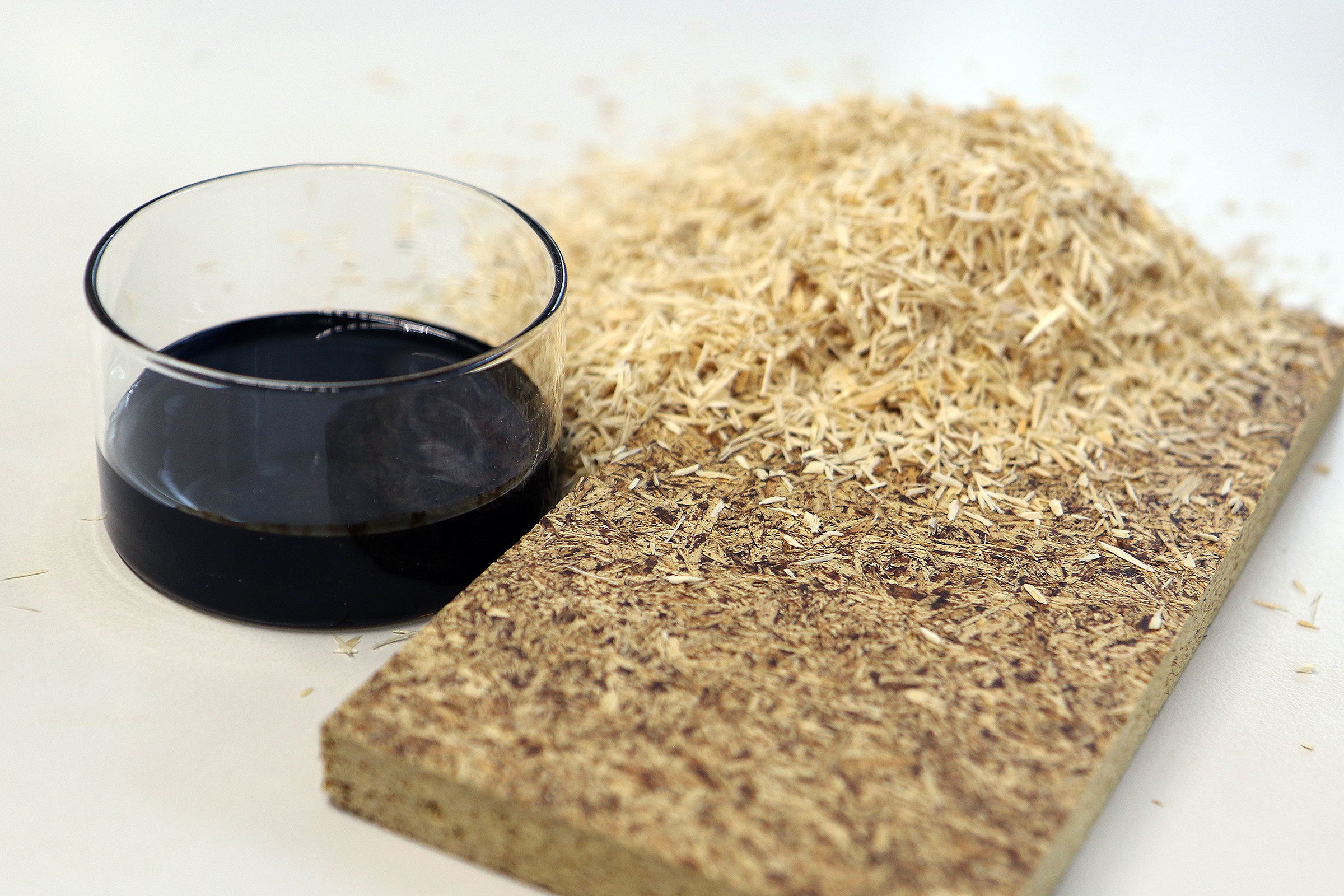Turning residual materials into resources: Bio-based adhesives for wood-based materials
The search for sustainable materials is gaining increasingly in importance – including in the construction and furniture industries. In order to meet this demand, researchers at the Fraunhofer WKI are developing bio-based adhesives on the basis of renewable raw materials and biogenic residues. In the “LowEPanel” research project, they are testing formaldehyde-free adhesives made from lignin and hydroxymethylfurfural (HMF) for the production of sustainable particle boards using regional wood residues. This enables them to develop high-quality bio-based materials, thereby optimizing the value chain. Bio-based adhesives are a key technology for the bonding of materials and the conservation of finite resources, and represent a promising growth market. As a result of the research being conducted at the Fraunhofer WKI, particle boards are becoming more ecological and easier to recycle.

In the current research project “LowEPanel,” researchers at the Fraunhofer WKI are working in collaboration with partners on the testing of adhesives derived from lignin and hydroxymethylfurfural (HMF). Lignin is a naturally occurring polymer found in the cell walls of plants and is a by-product of paper and bioethanol production. This therefore makes it a valuable resource for the manufacture of bio-based materials. HMF has the potential to be used as a starting material for the synthesis of various chemical products, including adhesives. It is a chemical intermediate that is obtained through the dehydration of sugar. Through their investigations, the researchers are tapping into high-quality areas of application for residual materials and renewable raw resources.
Formaldehyde-free organic binder for the production of particle boards
The researchers are using the formaldehyde-free organic binder, which is based on lignin and hydroxymethylfurfural, to produce particle boards for furniture and drywall construction. Particle boards are a sustainable and inexpensive building material. They are made from regionally available wood residues and recycled waste wood. The innovative adhesive does not release harmful formaldehyde and consists entirely of biogenic raw materials.
The research partners are furthermore testing whether the particle boards can be produced using alternative species of wood that will be available in greater quantities in the future as a result of forest restructuring. In the previous project, “AdLigno,” the Fraunhofer WKI successfully developed 100-percent bio-based and formaldehyde-free condensation resins on the basis of lignin and hydroxymethylfurfural (HMF) on a laboratory scale.
“In our new “LowEPanel” project, we are working with our partners on the further development and optimization of lignin-HMF resins for the production of particle boards.
The entire value chain is covered within the project: from raw-material suppliers, through material and process development, large-scale resin synthesis and dosing technology, and on to particle-board manufacturers,” reported Dr. Steven Eschig, Head of Department at the Fraunhofer WKI.
Last modified:
 Fraunhofer Institute for Wood Research
Fraunhofer Institute for Wood Research 
